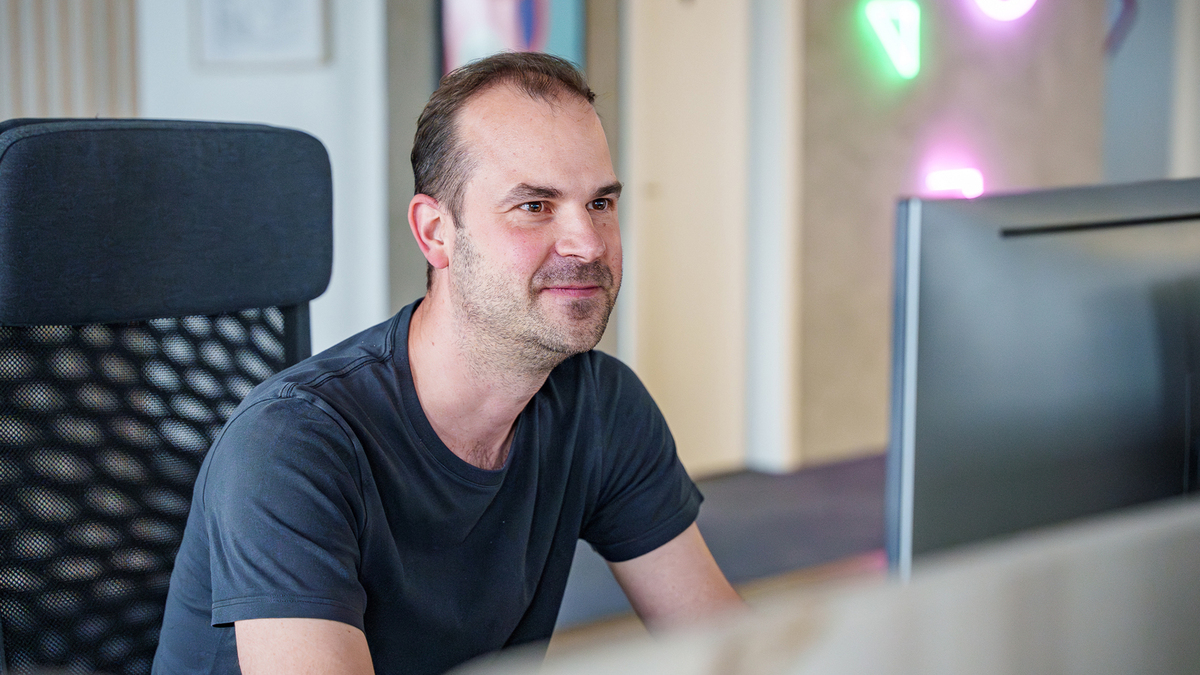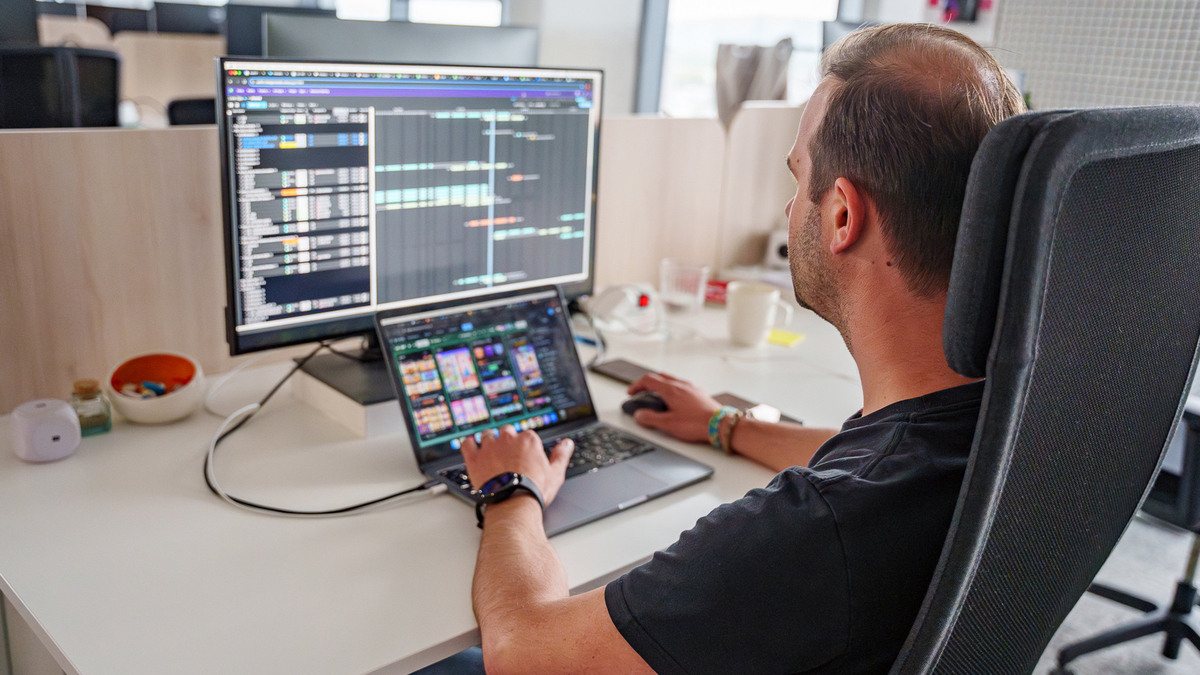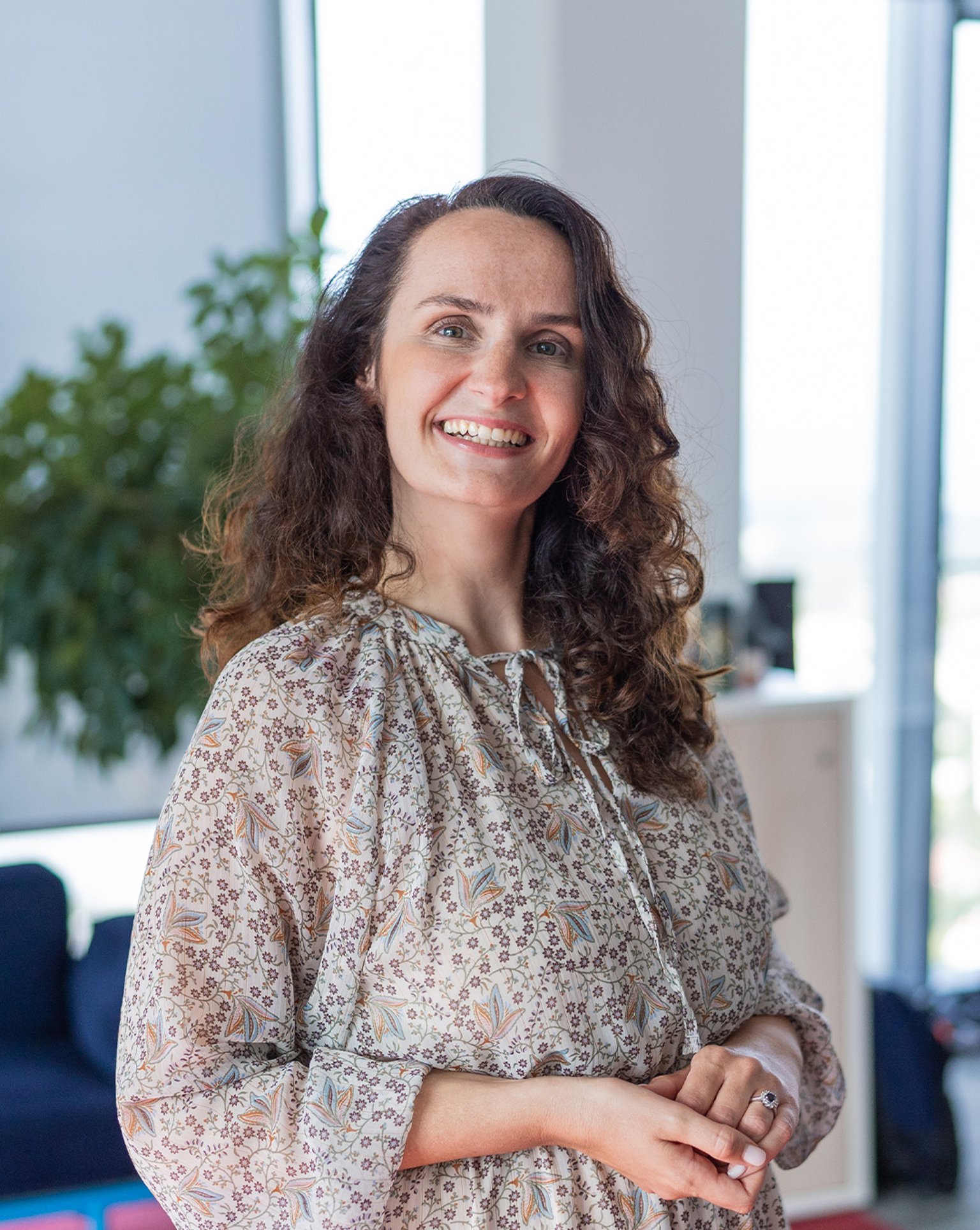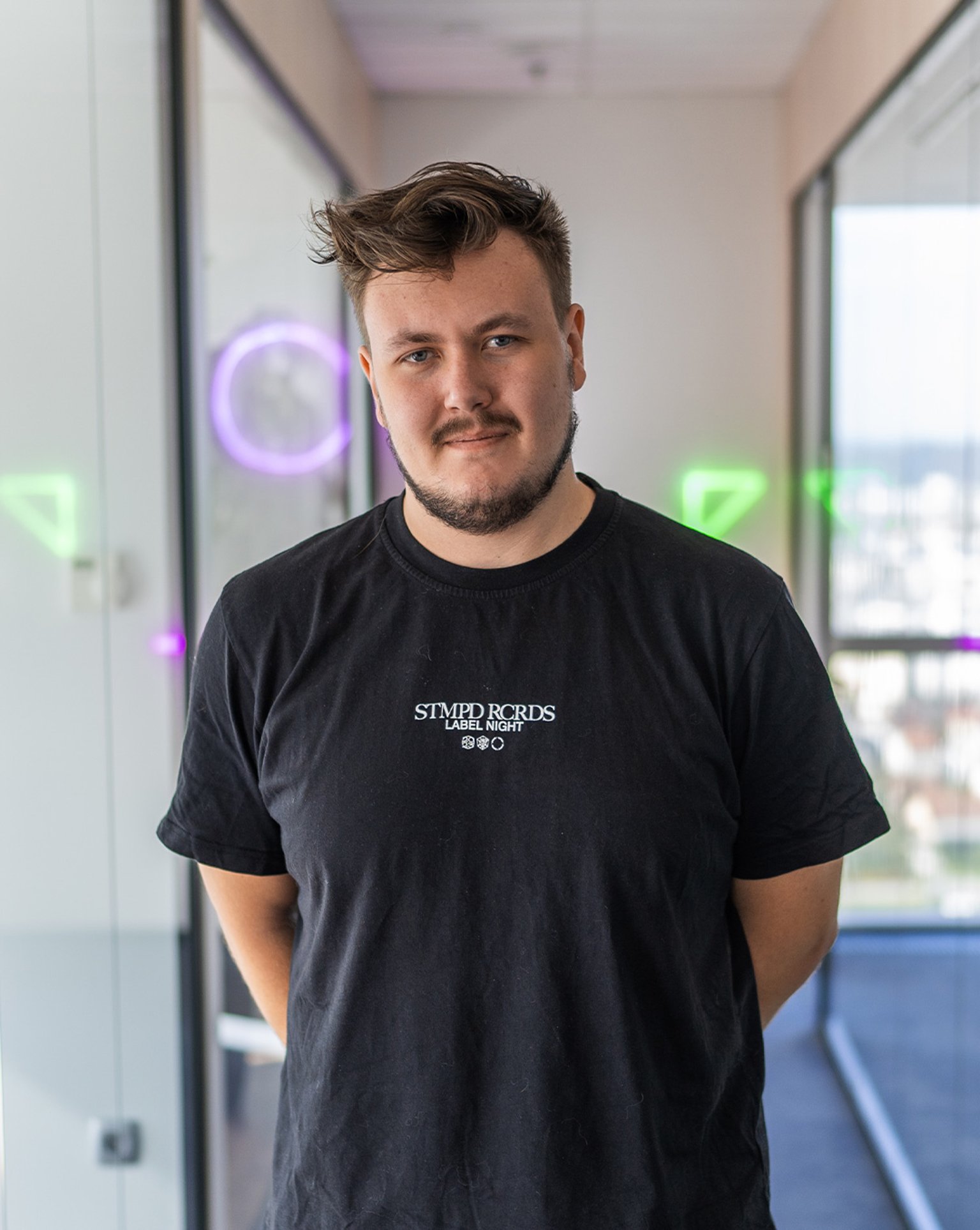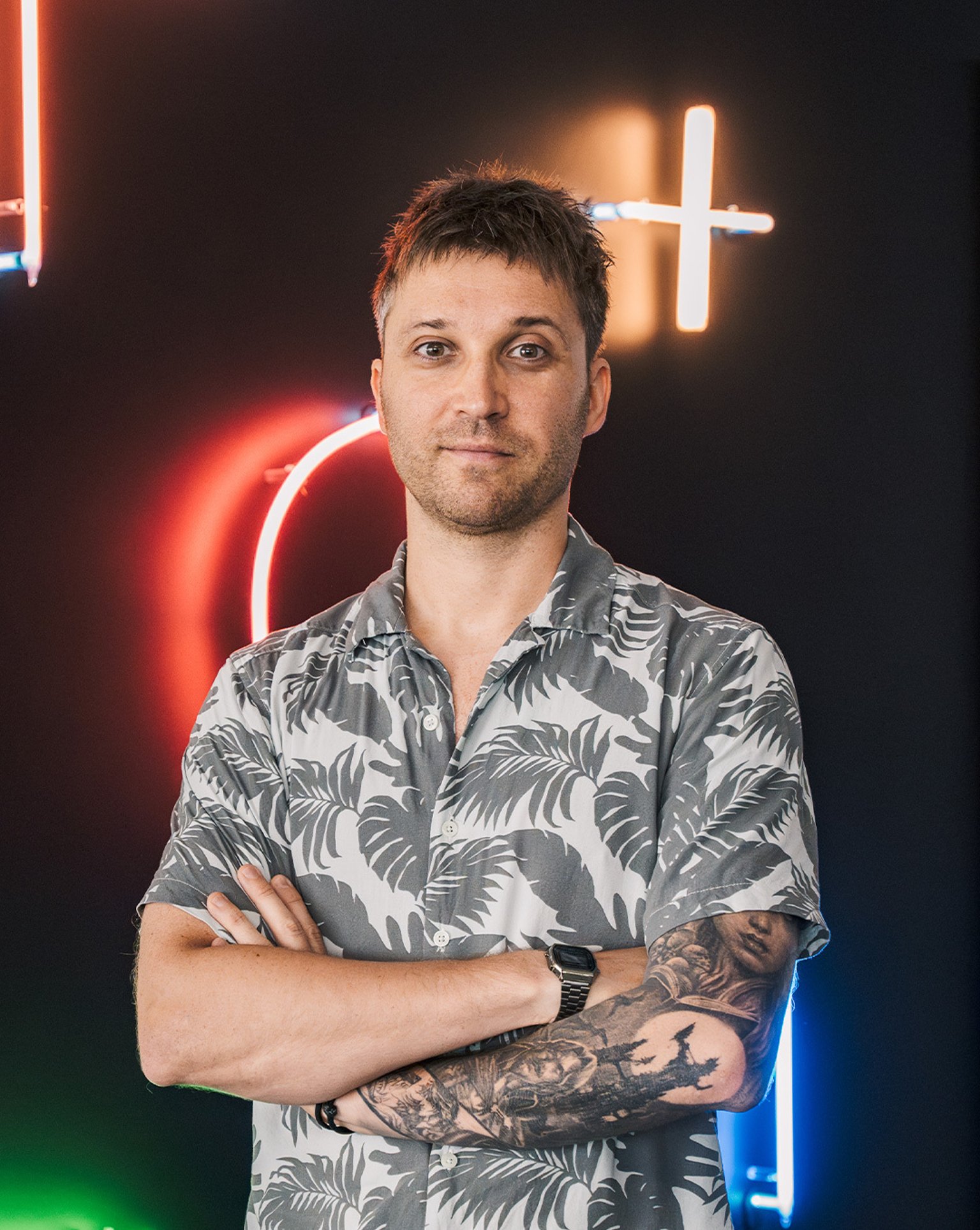I’ve liked games since I was a kid, and always had a strong desire to get into the industry. So, when an opportunity to work at Outfit7 (Ekipa2 d.o.o. subsidiary) came up, I took it. It’s really cool to be here, and my role as a game producer has everything. I’m connected with technology, art, and games — I’m connected with the whole industry in some way. So, it really is something that I enjoy.
As a game producer, a bit of basic knowledge of everything is really essential. You need to know a lot — but not too much, and not too little — about all the different departments that you are dealing with. It’s really imperative for us to know what every department does and how they do it. And leadership is really important. It’s important to be able to connect with people, so that they trust you, and know that you’re there for them and that you really do everything you can to help them. You’ve got to be someone who’s actually driving the idea and believing in it.
But no matter how much you believe in an idea, you have to know that with every single project, there’s a risk that it might not all work out in the end. And that sometimes, the best thing for a project is to cancel it. It’s probably a tough decision, and it’s always sad for everyone who’s put time and effort into the project. But at Outfit7, we’ve found ways to turn a project cancellation into a positive experience; one that we learn from, and one that ends up improving work on other projects that we embark upon!
Taking necessary risks
At the start of a project, you don’t need to think about the possibility that the game might not be a big hit. Sure, you need to do risk management — plan what you’re going to do if things don’t go to plan. But this is something that you do before you even start, then you set all that aside. Because when the wheels of production start rolling, you don’t have time to think about that stuff — you have so much going on besides!
Risk management is there to help with the decision making that can come later. It might be that during the production process, you realise that the project's scope is just too enormous for your production pipelines and teams. Or it might be that after soft launching the game in a handful of countries it’s not reaching its performance targets. And sometimes a game might even get canceled after global launch, if it proves unable to perform well enough in the long-term.
A game being canceled is especially sad for newer team members, for whom it might be a first project. And that’s normal — we’re all human at the end of the day. But “old grunts” like me have learned from experience that it’s something that needs to happen from time to time. And we’ve also learned how important it is to involve the whole team in looking back on a canceled project, and drawing as many positive lessons and experiences from it as possible.
Everyone gets to say their piece
The last time we needed to put the brakes on a project, we went through an extensive process. We had a one-to-one chat with every single team member on the project, and gathered their feedback on what they thought went well, and where things could have been better during the production of that specific game. And, while it was fairly time-consuming, we ended up gaining some invaluable insights, so it was well worth it.
The team really appreciated that they actually got the opportunity to speak up. And it also helped to close the book on the project and say, “I said my piece, I added my two cents. Now, let’s move forward. Let’s grab a beer.” It was actually a very cathartic experience.
But, of course, our main goal was to provide valuable insights for future projects. We ended up with a lot of information, which we then sorted through and prioritized into the most meaningful “headlines” — the main points that summed up the key takeaways of all the feedback. And things that came up during those discussions are now in motion on other projects.
More iteration, more prototyping
Perhaps more than anything else, we received a lot of feedback that reinforced a move towards "chunking" projects into smaller parts that we can carry out as we go along, allowing us to see if we’re on the right track during the earlier phases of the project. And I’m happy to say that this more iterative approach is now being taken on many new projects.
Projects are now split into many iterations with multiple milestones, and this is proving to be much better suited to the realities of game development. We set goals for each milestone separately, which was one of the suggestions that came out of all those one-to-one discussions. It’s such a positive thing, because it gives the team enough time without burdening them with one big, immovable, final deadline for the whole project. That’s a big step forward, for sure.
Another suggestion was that we should do more prototyping, trying a lot of different ideas as early on as possible, and establishing whether or not the mechanics feel good. When you’re in uncharted territory, it makes sense to verify any unknowns as soon as possible, and to use intermittent releases to guide and confirm the direction you’re taking. So that’s what we’re doing, and it’s working really well already.
Better feedback, better games
So now we have several new projects that are benefiting massively from the cancellation of one old one. But it’s not just the projects that are benefiting from that long, detailed feedback process. We’re benefiting as people too. I know I’ve personally really benefited from it.
One thing I took away from it, as a manager and a team leader, was to try to connect with the team more — to have one-to-one contact with team members. I’m doing that as much as I can now. Whenever possible, I go for a coffee with someone from my team, and have a general discussion with them about how they feel about the project and its progress.
When you’re one-to-one with someone, they usually open up more and tell you things that they might not say in a meeting or in front of the whole project team. The first major benefit of this is that I get fewer surprises later on, because I get more advance warning of potential issues. Of course, people would raise issues before too, but we weren’t encouraging it in the same way.
And the other main benefit, which is maybe even more important, is that it connects me with people, helping me get to know them better and build better working relationships with them. They appreciate that I’m making the effort to be more invested and involved with everything and everyone, and that has a positive ripple effect across the whole project and, I hope, across the whole company.
So yeah, projects getting canceled still isn’t my favorite part — it’s still painful sometimes, even for me. But I can say that we’ve learned how to make cancellations into positive learning experiences from which we’re able to move forward with better team spirit than ever before. Not only are we putting our past mistakes behind us, we’re setting ourselves up for a very bright future indeed.
🚀 We're Hiring a Senior Game Producer!
We have an opening for an experienced and versatile game producer who’s ready to take on the challenge of overseeing multiple mobile game projects. If you can back up your love of gaming with the organizational and leadership skills required to deliver a polished product on time and on budget, then you’re exactly the kind of person we want to hear from. Click here to apply.
